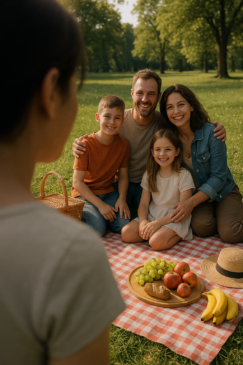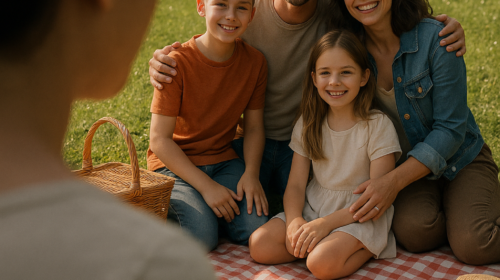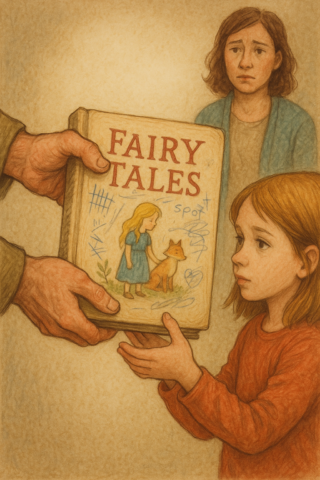There’s a quiet kind of pain that comes not from being left out, but from realizing you were never really “in” to begin with. When Ethan, my boyfriend of nearly a year, invited me to his family’s annual summer picnic, I thought it meant something. I imagined meeting cousins, laughing over grilled burgers, and maybe—finally—feeling like part of his world.
The day itself felt easy, even joyful. Ethan held my hand as we walked to the park, his mom welcomed me with a warm hug, and his younger brother challenged me to a cornhole tournament. I laughed, ate too many brownies, and watched Ethan goof around with his nieces. For the first time, I thought, Maybe this is it. Maybe I belong here.
When the afternoon sun started to fade, someone called for group photos. We gathered on picnic blankets and camp chairs, Ethan’s aunts fussing with sunglasses and toddlers wriggling in laps. Ethan smiled, wrapping his arm around me for a few snapshots. I felt giddy and safe, imagining how I might frame these photos later.

The Disappearing Act
A few days later, Ethan’s mom posted a cheerful album on Facebook: “Family Picnic 2025!” The cover photo was everyone crowded around the grill, mid-laugh. I scrolled through, heart racing to see myself reflected in the day’s memories. But as photo after photo loaded, a strange pattern emerged: I was nowhere to be found.
In every group shot, I’d been cropped out. In the candid pictures, the space where I’d stood was either conveniently blocked or just not included. Even the photo Ethan’s brother had snapped of us sharing a plate of potato salad was absent. I felt invisible—like a guest in my own story.
When You’re Not Part of the Picture
I tried to rationalize. Maybe it was accidental. Maybe Ethan’s mom didn’t have many photos with me in them. But the more I thought about it, the more it stung. Was I not really family? Was I not “official” enough to be included? The sense of belonging I’d felt that day faded into a raw, uncertain ache.
When I finally brought it up to Ethan, he looked surprised and then uncomfortable. “I don’t know. My mom does most of the posting. I’m sure it’s nothing personal.”
But to me, it was personal. It was about being seen, acknowledged, and counted—not just for a day, but as part of the bigger story.
The Conversation That Needed to Happen
Later that week, I sat down with Ethan and told him how I felt. “I loved being at the picnic. But seeing the photos made me realize how much I want to belong. It hurt to feel invisible—especially when you said you wanted me there.”
He listened. He hadn’t thought about what the photos meant. He promised to talk to his mom, and he did. The next day, a few more photos appeared online—including one of me and Ethan, grinning, arms around each other. It wasn’t perfect, but it was a step.
What I Learned
Inclusion is more than an invitation; it’s being seen and remembered, even when you’re not in the room. I learned it’s okay to want to be counted, to speak up for yourself, and to ask for the kind of love that doesn’t crop you out. Sometimes, families need a gentle reminder that their circle can—and should—expand.
Ethan and I grew closer after that, more honest about what we needed, and more intentional about showing up for each other—both in life and in the pictures.
Final Thought
If you ever find yourself missing from the photos, don’t shrink. Ask to be seen. The people who truly care will make space for you in the frame, and in their lives.



